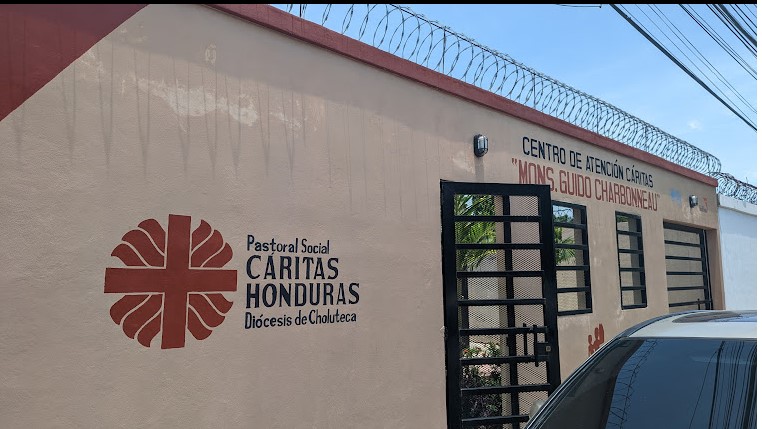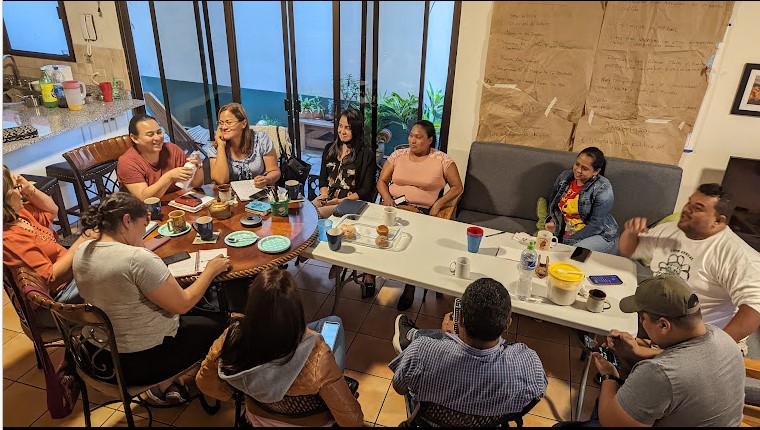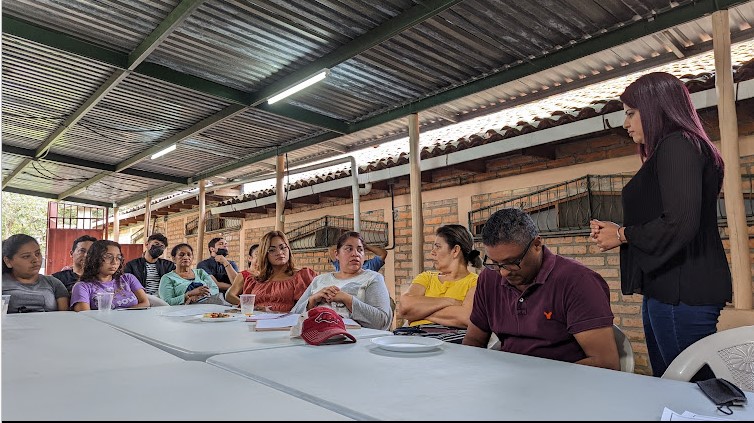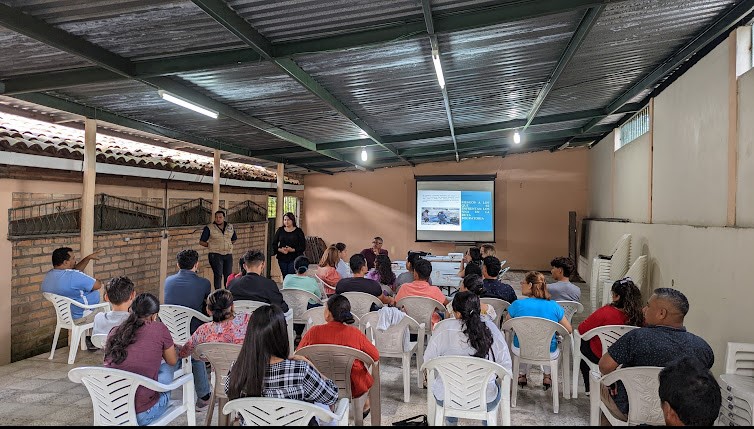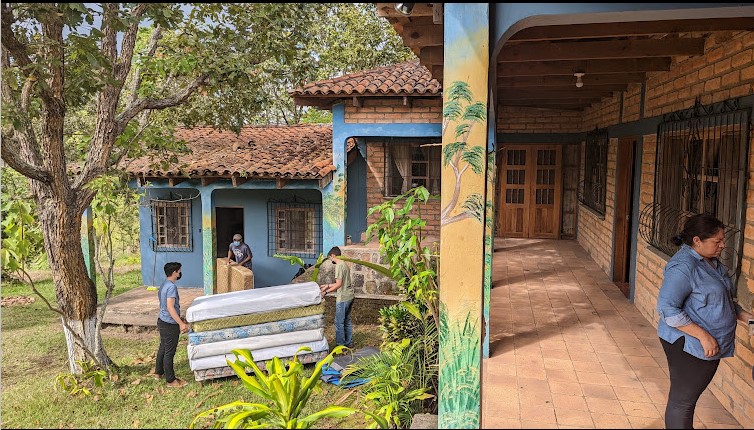A Letter from Dori Hjalmarson, serving in Honduras
Winter 2023
Write to Dori Hjalmarson
Individuals: Give online to E132192 in honor of Dori Hjalmarson’s ministry
Congregations: Give to D500115 in honor of Dori Hjalmarson’s ministry
Churches are asked to send donations through your congregation’s normal receiving site (this is usually your presbytery)
Subscribe to my co-worker letters
Dear friends,
Last fall, our Honduran seminary students were studying the Old Testament, and during a study of the second chapter of Ruth, one of my co-facilitators chimed in with the observation, “This story is about migration.” Ruth, the woman from Moab, had returned to Israel with her mother-in-law, Naomi, and had begun living according to the laws governing landless widows and foreigners in Israel: She began to glean in the fields, hoping that the Israelite landowners would be generous enough to leave sufficient food for both Ruth and Naomi.
We usually remember that Ruth, the mother of Jesus’ ancestors according to some genealogies, was a childless widow who became the wife of Boaz. But we sometimes don’t mention, my colleague reminded me, that Ruth and Naomi were also immigrants, and had married immigrants, who traveled between Israel and Moab, nations traditionally considered enemies. So, as our class analyzed how to connect this ancient text to our modern lives, this aspect of immigration as an ancient reality stood out for us.
Honduras has long been a place of origin for migrants making their way north to the United States and Canada, and Spain. Nearly 30 percent of Honduras’s gross domestic product comes from remittances—money sent back to Honduras from friends and family living overseas. This year in particular, however, the dynamic of migrations in Honduras is changing. We are noticing now that Honduras is also a point of transit to the north for hundreds of migrants from South America, Asia and Africa. Organizations that attend to migrants have mobilized in Honduras to defend the rights and protect the dignity and safety of foreign migrants in this country.In mid-September, I spent a few days visiting Honduran church partners with my colleague serving in El Salvador, Joseph Russ. We visited a new shelter established by the Catholic Church to house and serve people in transit through Honduras. In its first three months of existence, the shelter had housed 190 people from Venezuela, Colombia, Nicaragua, Cuba, Haiti, and even Senegal and Bangladesh. Local organizations estimate that up to 800 people enter Honduras daily with the intention of passing through to the countries to the north, and the local organizations have the Honduran government for a moratorium on the impossibly high $250 permit it had been taxing migrants for five days of permission to transit the country. Meanwhile, caravans of Hondurans continue to leave the country at a rate of 500 a day, intending to seek asylum or to cross without permission into the United States or another country.
Reading Ruth, I am struck by the laws of ancient Israel that provided for the protection of foreigners, providing a systematic route to feed themselves and their families. They had the right, and Israelites were legally obliged to allow, gleaning in the fields of grain that fell from the stalk. I am also struck by the actions Boaz took to go above and beyond what the law required, ordering his workers to allow more grain to fall, inviting Ruth to his table, and eventually marrying Ruth, the Moabite, in order to provide her and Naomi protection and belonging. Imagine our modern world if we followed his example, what saving grace might arrive in our midst?
In November, moved by a sense of solidarity and compassion, the Presbyterian Church of Honduras signed a memorandum of understanding with the National Forum for Migrations in Honduras so that the church may receive migrant persons as guests in the retreat center that the women of the church run. The migrants will be identified by the Forum as needing rest and care for a few days before continuing their journey north or returning to their countries of origin. The church will provide a safe and peaceful respite and humane contact. On the day that the Honduras presbytery voted to approve the agreement, a Venezuelan man walking down the highway noticed the gathering of people meeting at the retreat center. He walked up the drive to ask for a drink of water. The women preparing lunch in the kitchen gave him water and a plate and a chair to rest his feet. Before going on his way, the man described a bit of the difficulty he had experienced. He had walked for weeks through the Darien Gap, the dense jungle between Colombia and Panama, and through at least four countries to arrive in Honduras. “It’s been a terrible experience,” he said. I asked him, “How did you find us here?” He replied as he finished the first hot meal he’d had in a few days, “I think you found me.”
As we enter the Lenten season, I implore you to think of those people in the world who are forced to be on the move, knocking on doors, seeking room in an inn, protection from authorities, and the goodwill of strangers.
Thank you for your support, prayers, communication and presence with me and with the Presbyterian Church of Honduras.
Dori
![]() You may freely reuse and distribute this article in its entirety for non-commercial purposes in any medium. Please include author attribution, photography credits, and a link to the original article. This work is licensed under a Creative Commons Attribution-NonCommercial-NoDeratives 4.0 International License.
You may freely reuse and distribute this article in its entirety for non-commercial purposes in any medium. Please include author attribution, photography credits, and a link to the original article. This work is licensed under a Creative Commons Attribution-NonCommercial-NoDeratives 4.0 International License.
